While AI traffic is growing as a referral source, Google still dominates by a factor of 345x, and Reddit out-refers all three major AIs combined.
As it stands AI traffic isn’t making much of a dent, so is it worth pursuing?
Here’s what we know so far…
Sidenote.
Thanks to our data scientist Xibeijia Guan for aggregating all of the data behind this research.

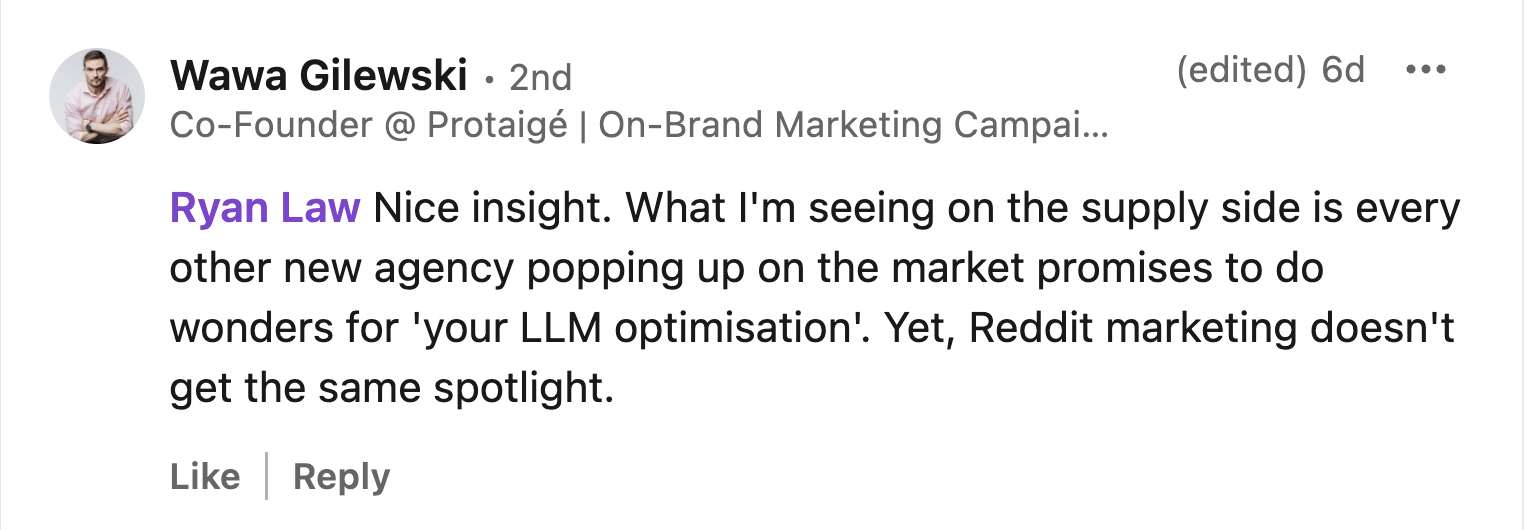
But traffic isn’t the only thing that matters.
It’s also about awareness and conversions, and we’re seeing signs that AI can deliver on both fronts.
For instance, approximately 3% of our own conversions have come from AI over the last year, based on registration data, and qualitative “how did you hear about us?” responses.
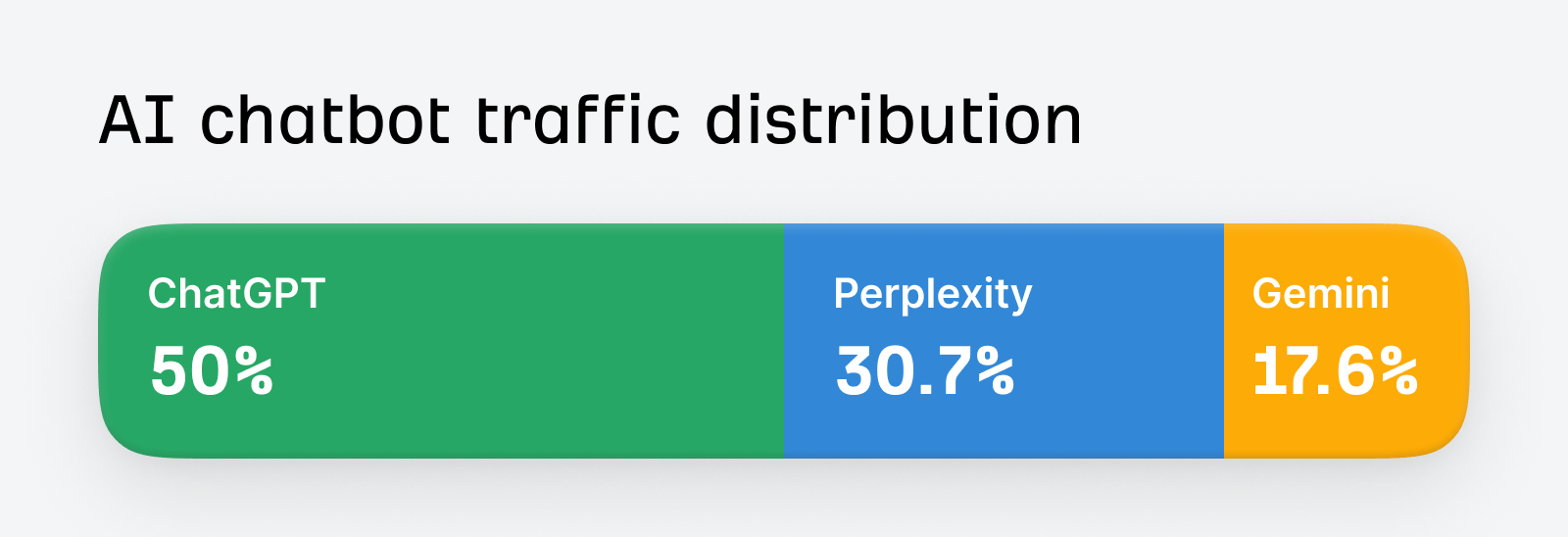
Our new research shows that Perplexity has overtaken Gemini as a traffic referral source.
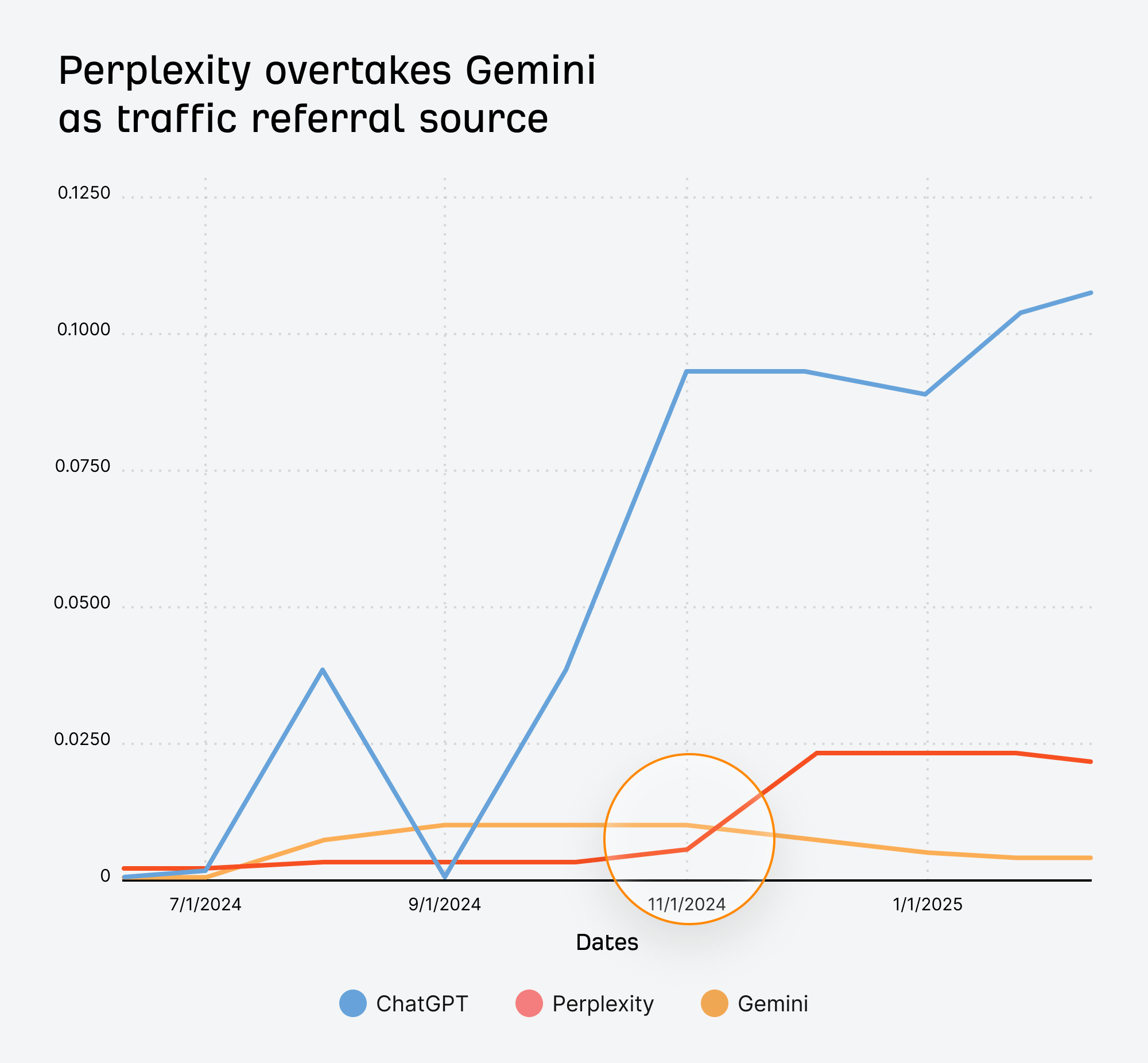
According to data from Kevin Indig, Perplexity is the AI most likely to cite a brand in its responses, which does a lot to explain this growth.
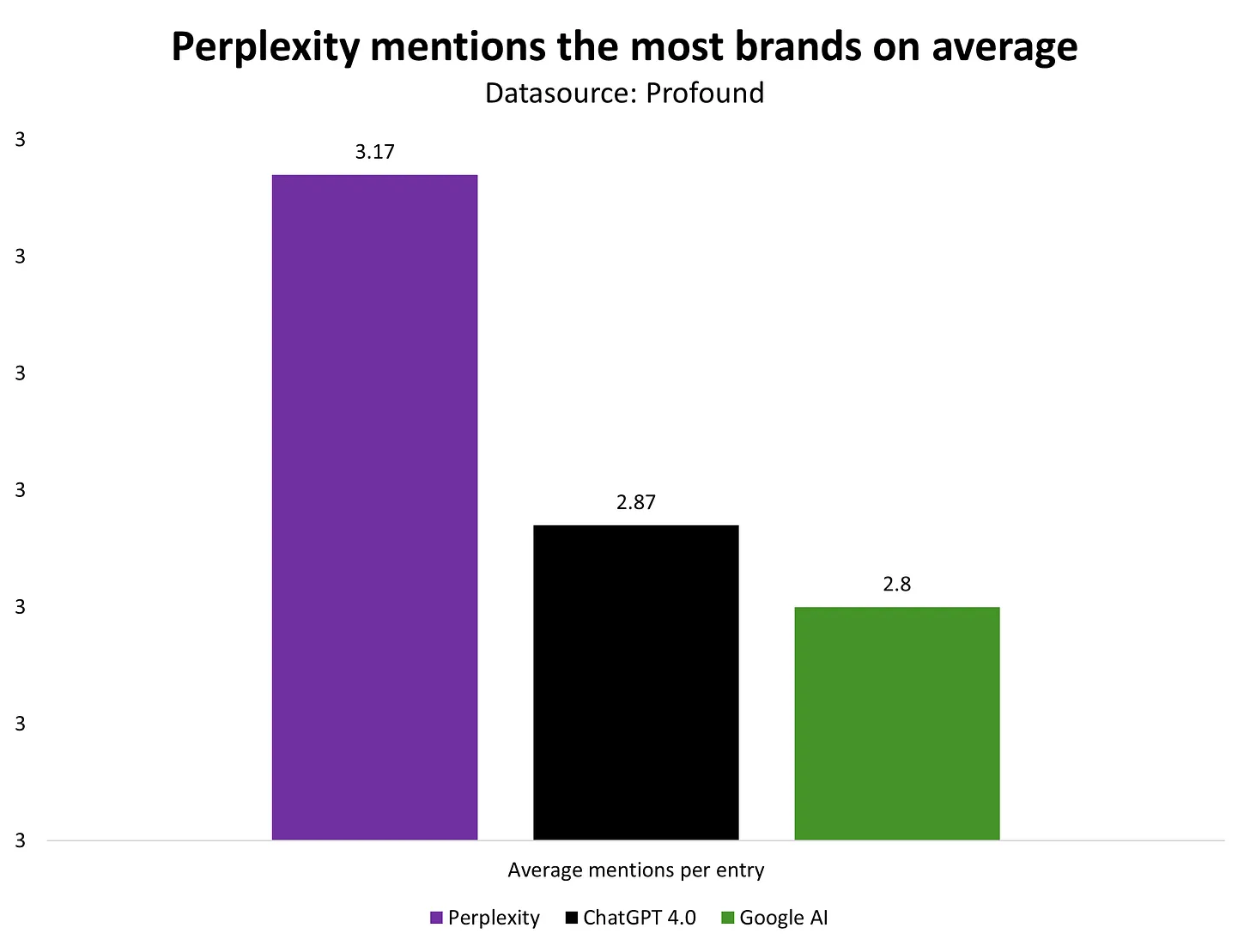
In the same study, Kevin reveals that brand mentions in ChatGPT correlate most with a site’s domain rating, while Perplexity and AI overview mentions correlate with deep content.
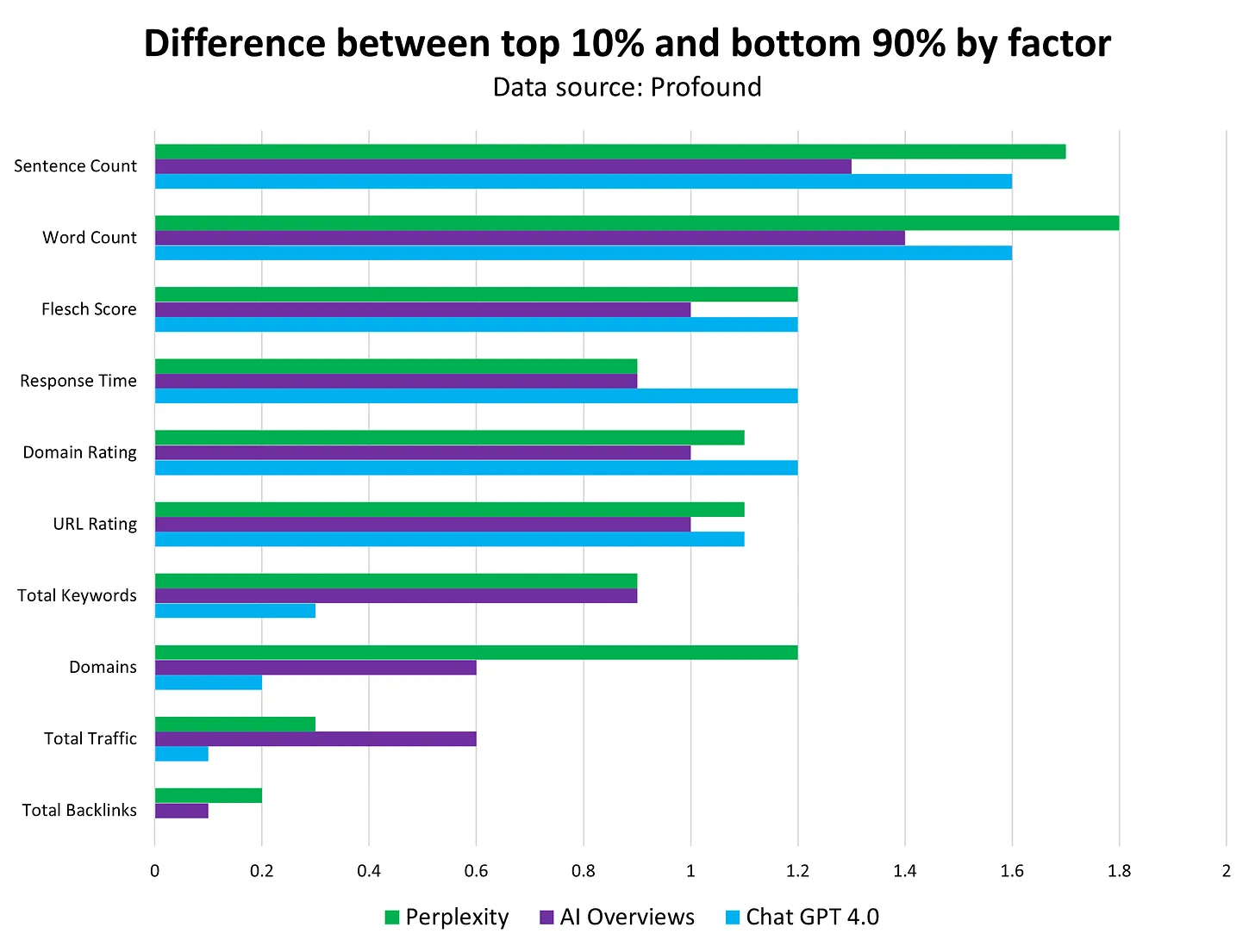
Sites receiving under 10K visits can now expect 0.3% of their traffic to come from LLMs, vs. 0.1% for those exceeding 1 million visits.
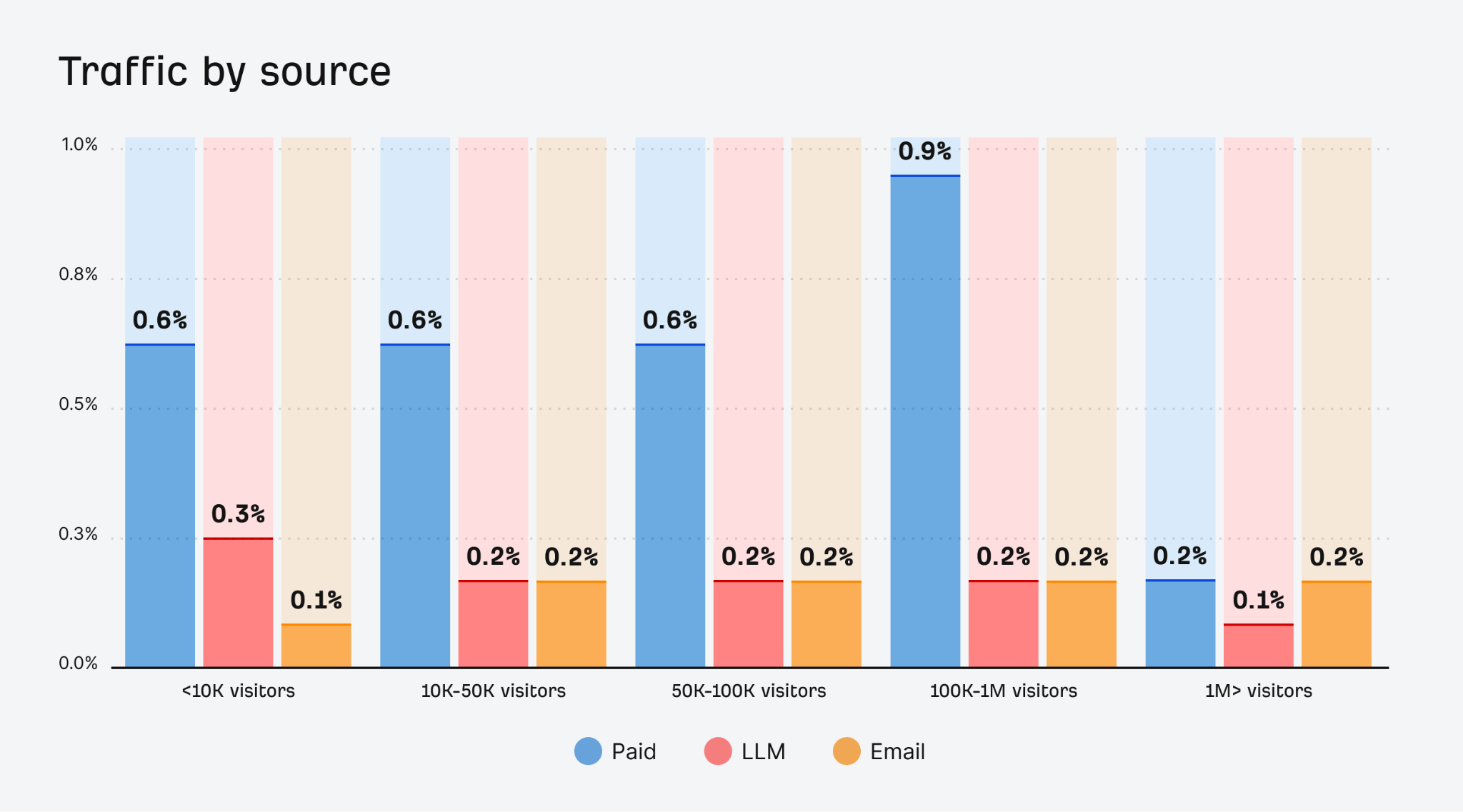
Smaller sites also tend to attract more traffic from AI than they do from email, while the opposite is true of larger sites.
One possible explanation for this discrepancy is that smaller sites and brands are less familiar to the user, resulting in more research-geared clicks.
But, even without tracking anomalies, AI traffic would be modest, because users are able to do more of their research without clicking.
The reality is AI drives significant brand awareness, creates more informed audiences, and delivers more qualified leads—it’s not just about traffic.
Wrapping up
AI is the shiny new thing. Everyone wants to get involved. But AI traffic is still minimal compared to more established channels—you risk over-investing if you get carried away by the hype.
Like social media keeps you on-platform sharing interesting content, AI keeps you on-platform having interesting conversations—sending out external traffic is not the goal.
For that reason, AI will never be one of the top referrers in your site analytics.
Its main benefits are increased brand awareness and positive brand sentiment, through on-platform mentions.
Trackable AI traffic and conversions are a happy byproduct—treat them as your secondary KPIs.
Before you commit to building your AI traffic, ask yourself: are my audience actually using AI to find my business?
Make a judgement call based on regional and vertical AI traffic usage, and your own customer data.
Once you’re confident your audience is there, track AI broadly and regularly.
Track brand mentions in AI
Use a tool like Ahrefs Brand Radar to monitor the growth of your brand mentions, and track brand sentiment in AI.
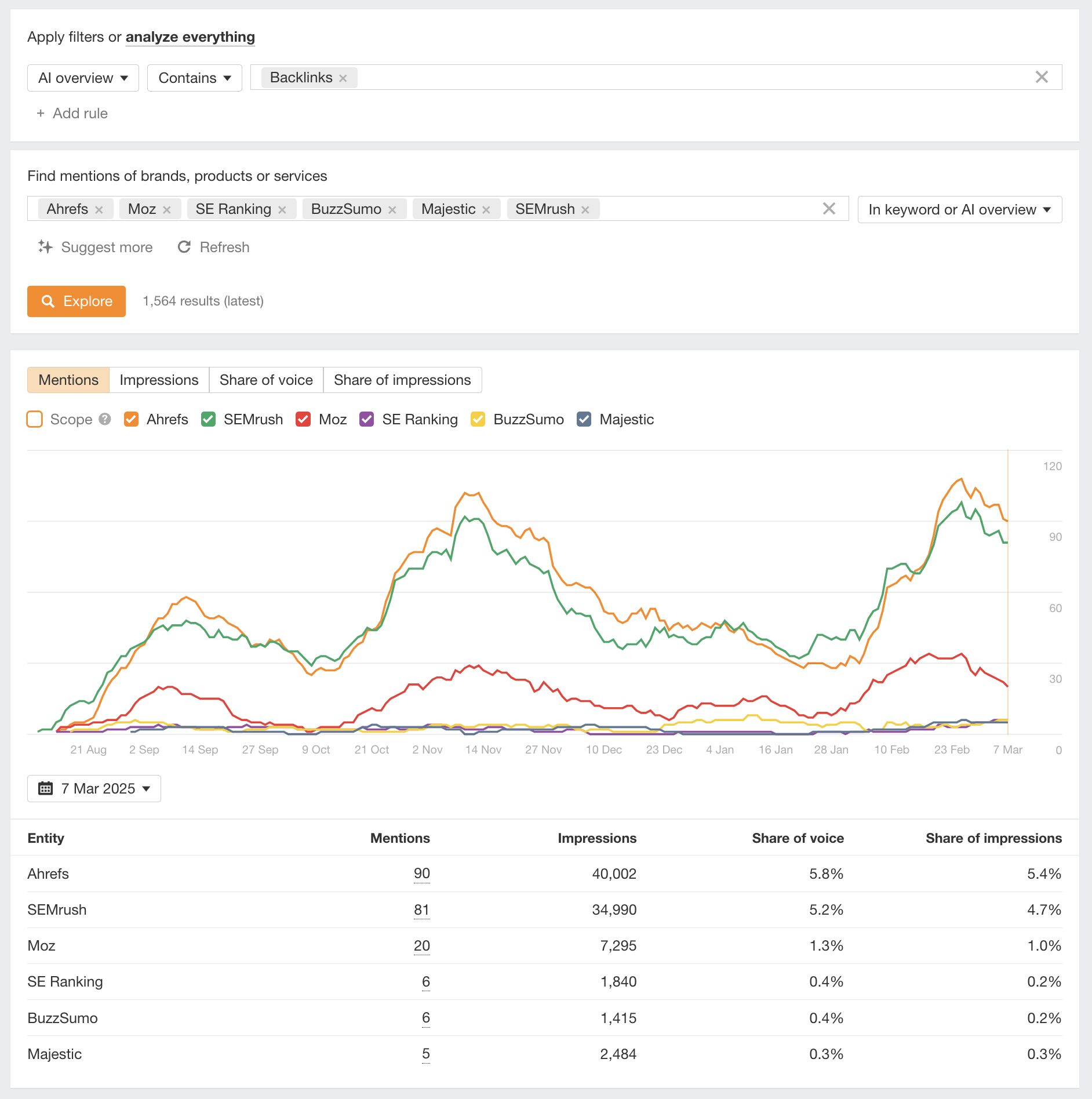
Track AI traffic
Set up AI traffic reports to track chatbot referral trends…
…and optimize pages that are earning actual visits.
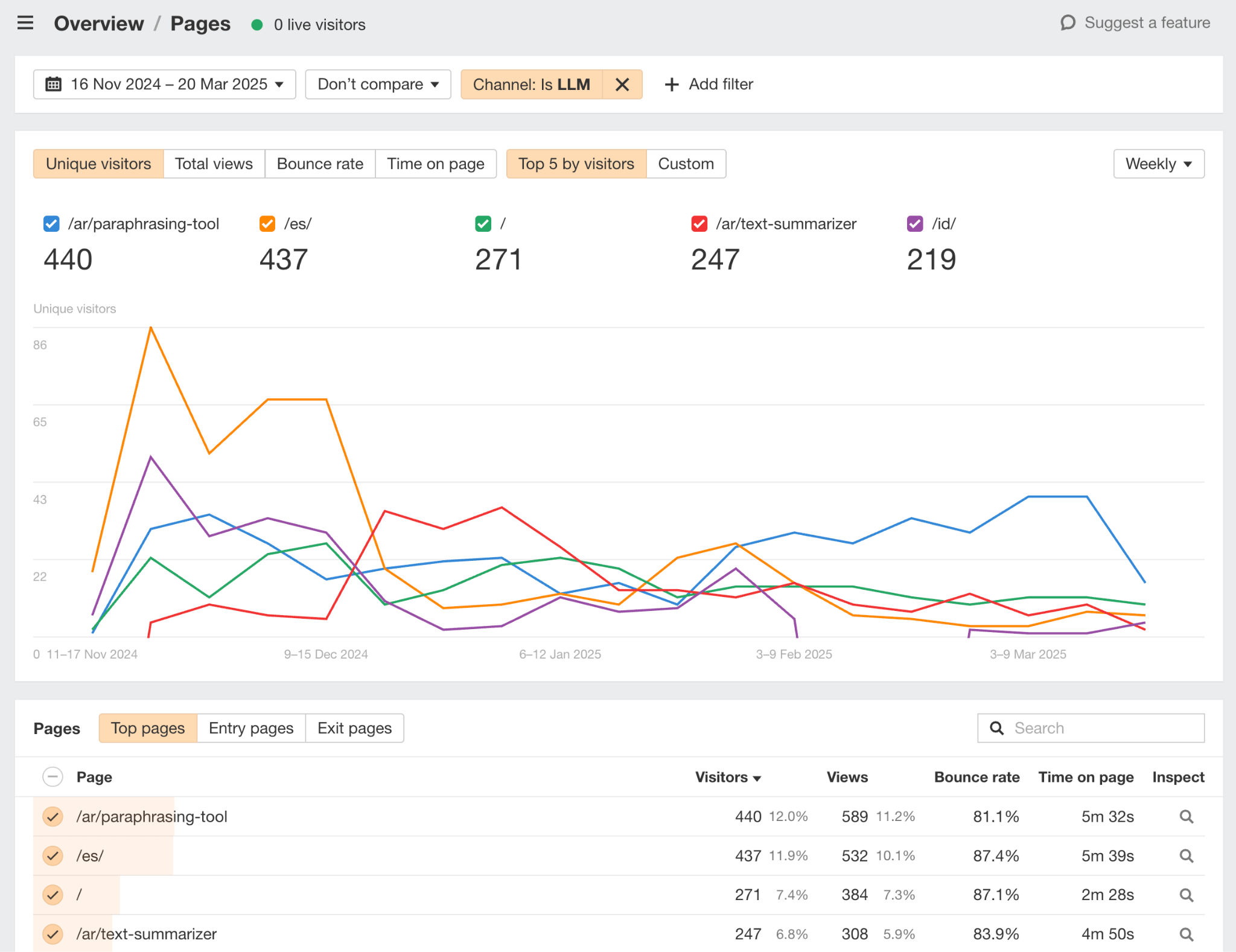
Track AI conversions
Improve your conversion tracking to better attribute any AI-assisted conversions.
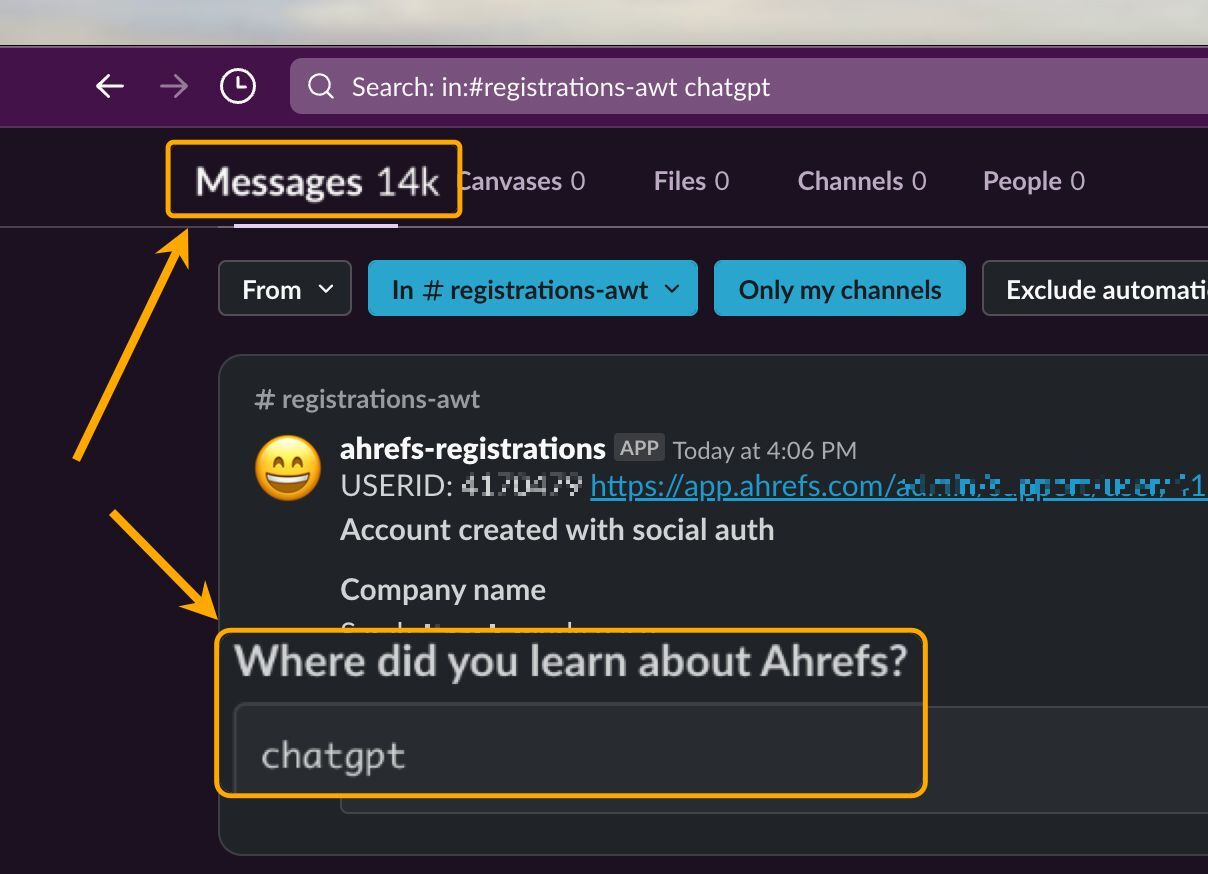
AI traffic is modest, and while it’s not something to ignore, you need to be smart about how you approach it.
Similar Posts
Updates to React and OAuth 2 Tutorials
We’ve rolled out a major update to two courses in our Decoupled Headless Drupal guide: Get Started with React and Drupal Together and API Authentication with JSON:API in Drupal. These updates (and a new tutorial!) bring our tutorials in line with current security best practices and modern React development tooling. Huge thanks to lead trainer,…
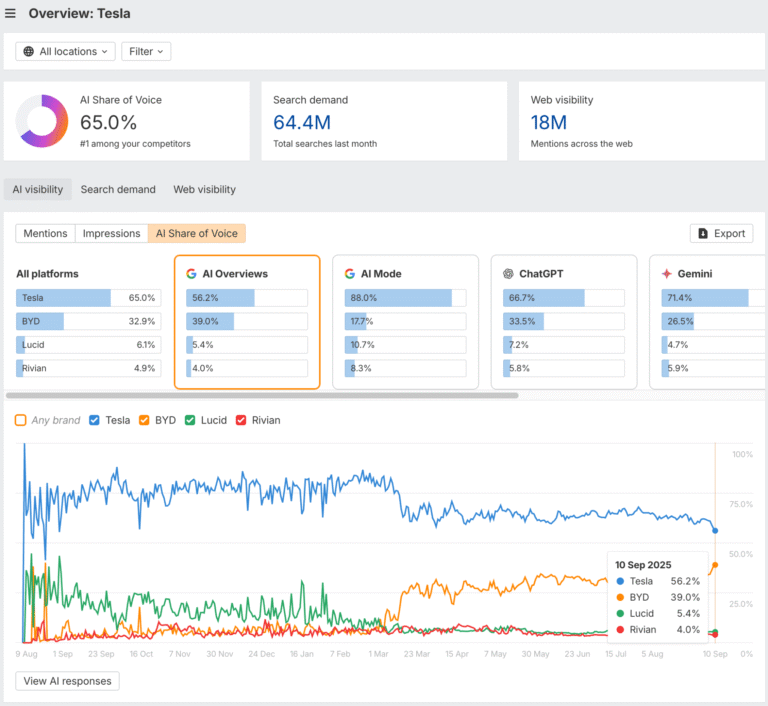
The Complete AI Visibility Guide for SEOs, Marketers, and Site Owners
Visibility in AI search is still in its early stages, which means you’re not late to the game—you’re actually early. Most businesses haven’t even started tracking their AI mentions, let alone optimizing for them. This creates a genuine first-mover advantage for those who act now. This guide will walk you through everything you need to know…
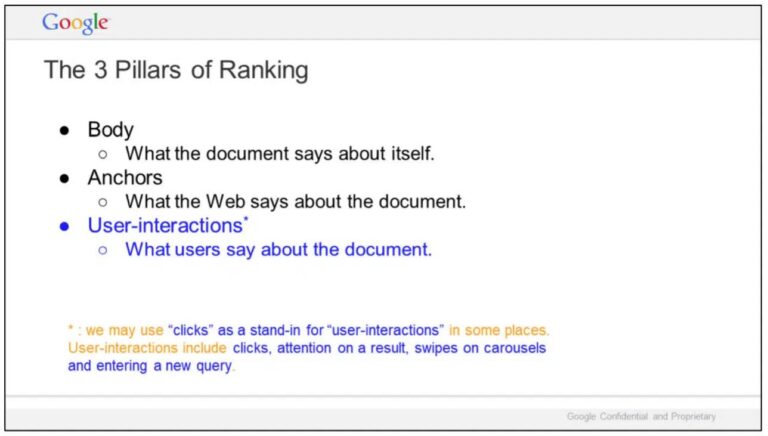
UX and SEO: A Guide for Winning the Searcher, Not Just the SERP
UX and SEO are interconnected in more ways than many people realize. User interactions, also called UX signals or user signals, include things like clicks, scrolls, swipes, and mouse hovers. These now play a major role in how Google ranks content and which brands gain more visibility in search results. Here’s everything you need to…
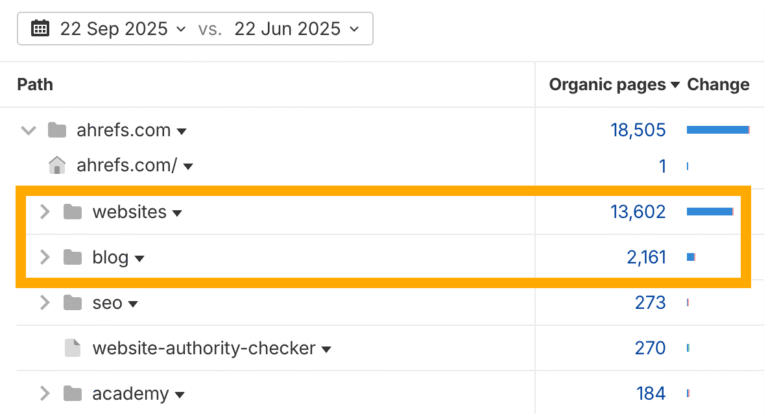
I Wouldn’t Hire a Content Engineer, and You Shouldn’t Either
We’re all trying to figure out the future of content marketing. Thanks to generative AI, every part of our discipline is in flux: the tactics and strategies that yield great results, the tools and processes we use to achieve them, even the unit economics that justify it. One suggestion put forward by Josh Spilker at…
More Videos Added to Module Developer Guide Tutorials
This week, we’ve added 7 new videos to existing tutorials in our Module Developer Guide. The Module Developer Guide was created for developers familiar with PHP but new to Drupal module development. Updated tutorials — now with video! Here’s a list of tutorials that now have videos embedded. Select the + icon to add the…
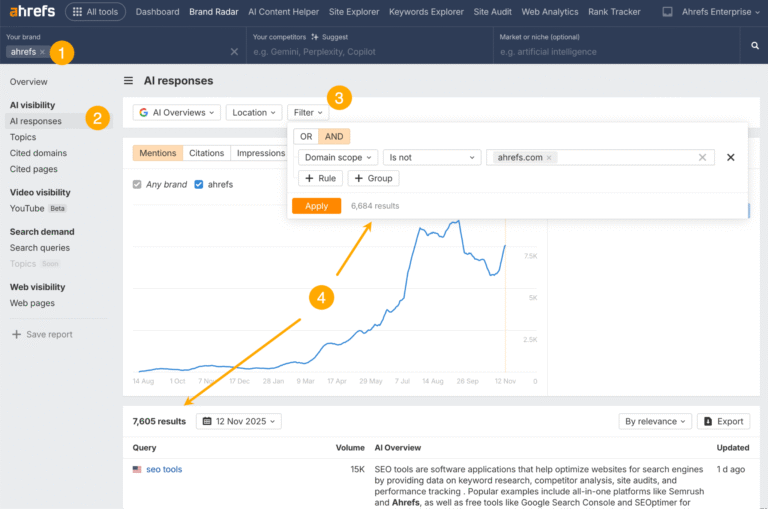
Do AI Assistants Link When Mentioning Brands? For Ahrefs, Only 28% of the Time
AI assistants mention brands constantly but they rarely include links. When I tracked brand mentions for Ahrefs across six AI platforms, I found they linked to Ahrefs as rarely as 10% of the time for AI Overviews, and as often as 50% of the time for Perplexity. But here’s what matters more: in our case,…
